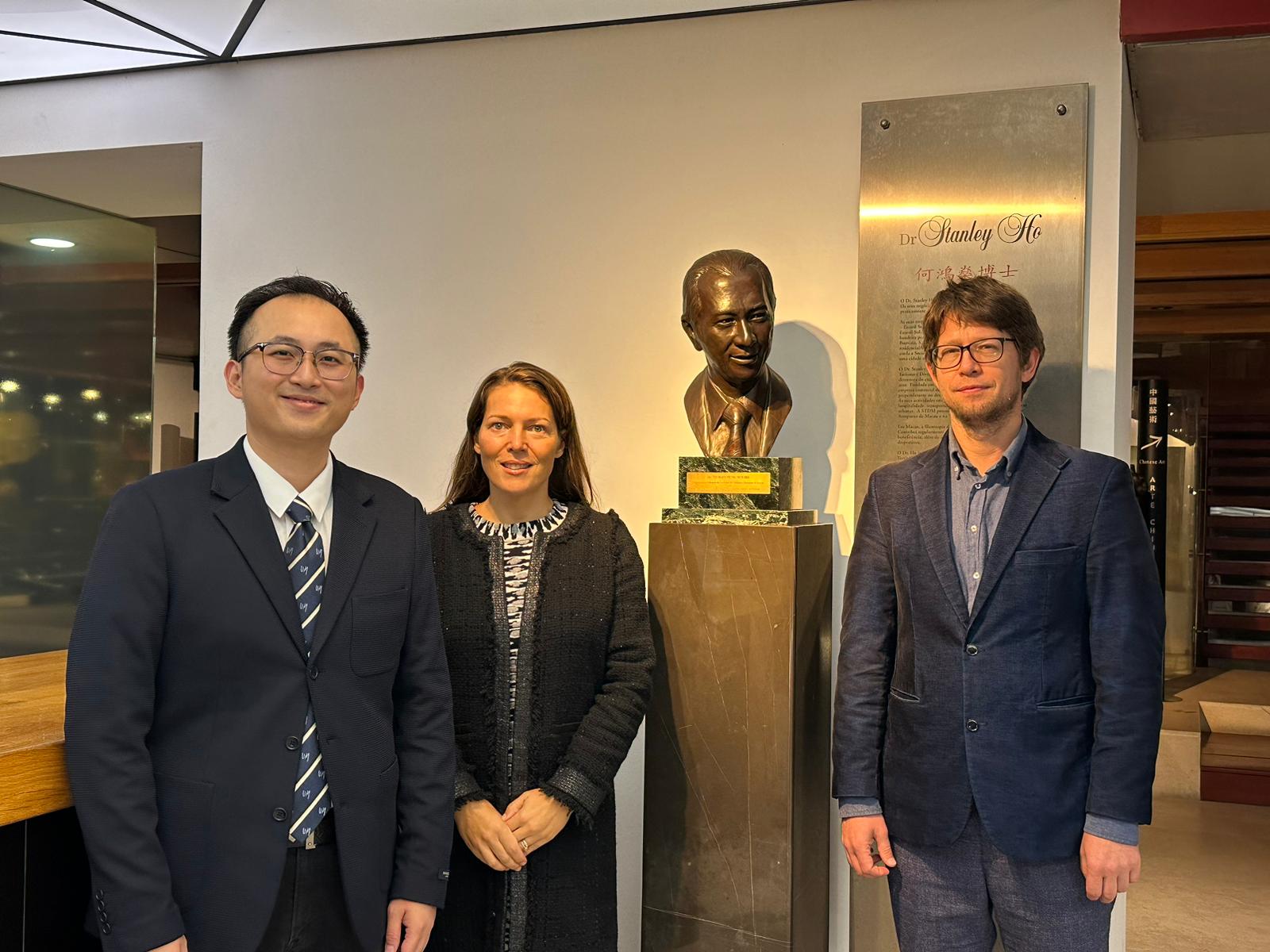USJ’s Research Laboratory for Cultural Sustainability Presented Two Seminars in Lisbon, Portugal

USJ's Research Laboratory for Cultural Sustainability Presented Two Seminars in Lisbon, Portugal
21
Nov
21/11/2024
The Research Laboratory for Cultural Sustainability at USJ, led by Coordinator Prof. Denis Zuev, collaborated with Prof. Ka Nok Lo from the Department of History at the University of Macau to present his work in two seminars held in Lisbon, Portugal.
The Research Laboratory for Cultural Sustainability at the University of Saint Joseph (USJ), led by Coordinator Prof. Denis Zuev, collaborated with Prof. Ka Nok Lo from the Department of History at the University of Macau to present his work in two seminars held in Lisbon, Portugal. These events took place on October 29 at the Centro Científico e Cultural de Macau and on October 30 at the Instituto Oriente, University of Lisbon.
In the first seminar titled “Ching Ming Festival, Tomb Sweeping Passes, and the Special Cross-border Funeral Economy: Constructing Identity among Chinese in Macao in the Mid-20th Century“, Prof. Ka Nok Lo explored the dynamics of land use for cemeteries as significant cultural spaces. He examined how changes in the funeral economy influenced cross-border movements of people, shaping relationships among Chinese residents in Macao, Hong Kong, and mainland China, as well as with relevant authorities. Historical narratives from this period are vital for understanding the importance of the Ching Ming Festival in pre-handover Macao and the associated cross-border mobility. Although the subjects of funerals and cemeteries are not commonly studied by Chinese scholars, they are essential to the field of death studies and provide insights into the cultural meanings of death. Indeed, some researchers argue that the ceremonial preparations for funerals carry more significance than those for weddings. Additionally, urbanisation and rising land costs have led to significant transformations in death practices and cemetery management in urban China.
In his second seminar, “Between Reality and Fiction: A Global History of Export Paintings and the Transformation of Macao’s Image in the 18th and 19th Centuries“, Prof. Ka Nok Lo introduced the methodology of using “Images as Historical Evidence.” He highlighted how 18th and 19th-century paintings of Macao have become crucial documents for historians studying the region’s history. Notable works, such as the “Gentilloni Painting” and the Long Scroll of Macao Landscape (澳門山水長卷), have garnered significant scholarly attention. He also discussed the complexities of analysing these images within the context of their production politics and how visual symbols are interpreted differently by scholars in Asia and Europe, allowing for multiple interpretations of the historical realities of that time. Additionally, these paintings served as important export commodities in China’s global trade, functioning as souvenirs and later becoming integral to “chinoiserie” collections in the homes of European elites.










